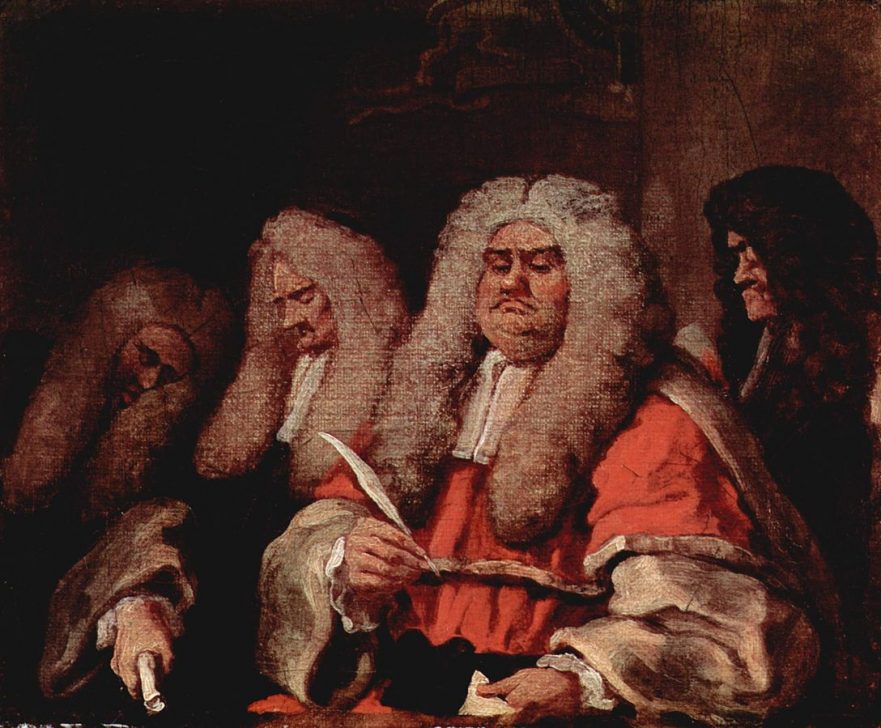In what way is God similar to a crooked judge? Do believers have to pester God into action? Explore questions such as these in the LOY commentary on the Persistent Widow Parable.
Yeshua’s Discourse on Worry

In Yeshua’s Discourse on Worry Jesus confronted one of the most serious concerns of the disciples: how would their basic needs be met now that they had given up their possessions and livelihoods in order to itinerate full-time with Jesus?
Praying Like Gentiles
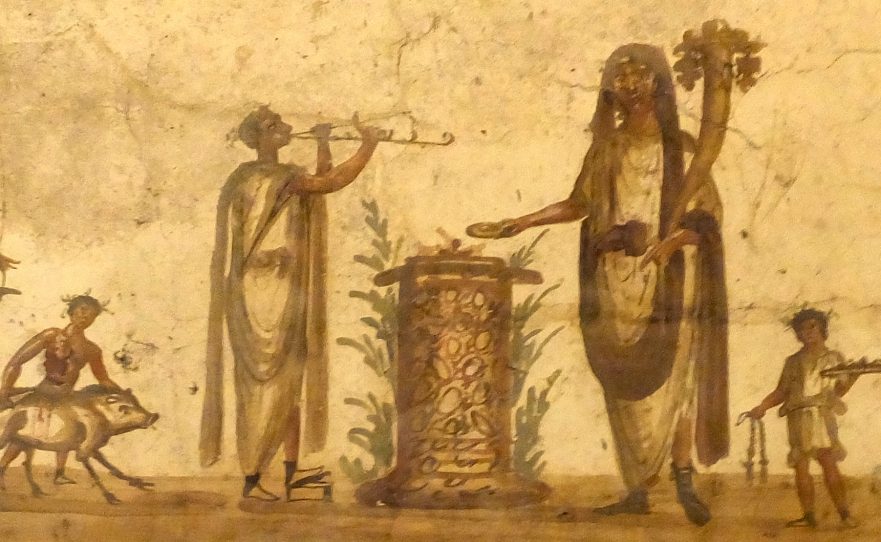
What can Jesus’ warnings against praying like Gentiles teach us about Jesus’ relationship to Second Temple Judaism and his attitude toward non-Jews?
Lost Sheep and Lost Coin Similes
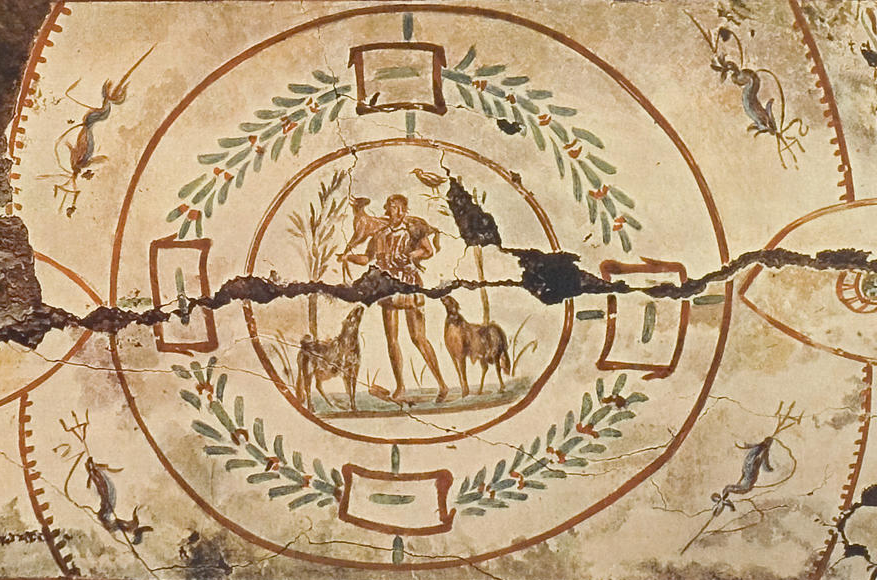
With the Lost Sheep and Lost Coin similes Jesus explained to his critics that he ate and drank with “sinners” because God rejoices when a person repents. God wants his friends—including Jesus and Jesus’ critics—to join him in the celebration.
Call of Levi
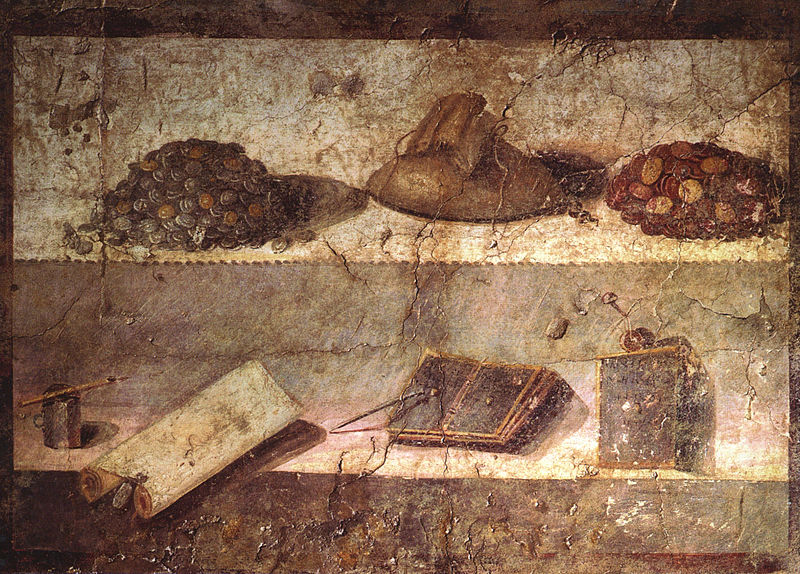
In the Call of Levi story we learn about Jesus’ attitude toward sinful persons and about his relationship with the Pharisees.
Mysteries of the Kingdom of Heaven

Did Jesus offer a rationale for teaching with the aid of story parables in this pericope, or does the Mysteries of the Kingdom of Heaven saying celebrate the dawning of the new age of redemption?
“Yohanan the Immerser and the Kingdom of Heaven” complex
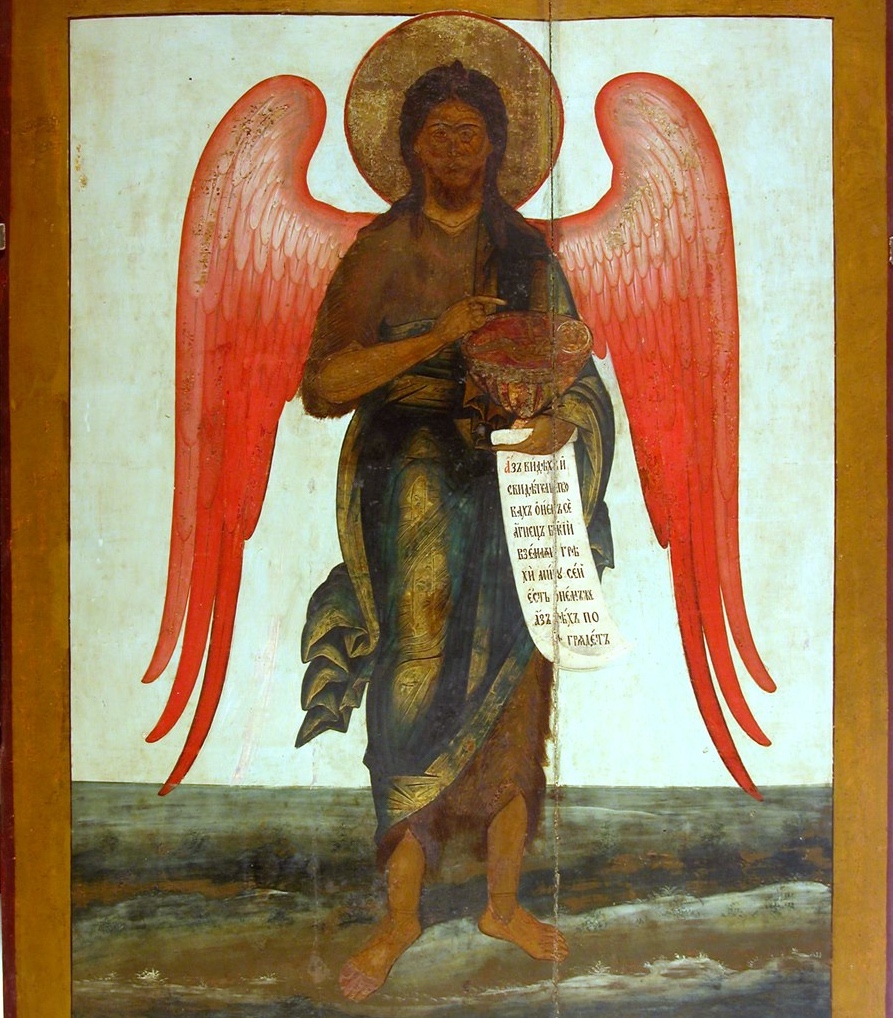
The Hebrew Life of Yeshua, the source that Robert Lindsey believed ultimately lies behind the Synoptic Gospels, contained a conversation about John the Baptist and his relationship to the Kingdom of Heaven. David N. Bivin and Joshua N. Tilton attempt to reconstruct that conversation here.
LOY Excursus: Criteria for Identifying Separated Twin Parables and Similes in the Synoptic Gospels
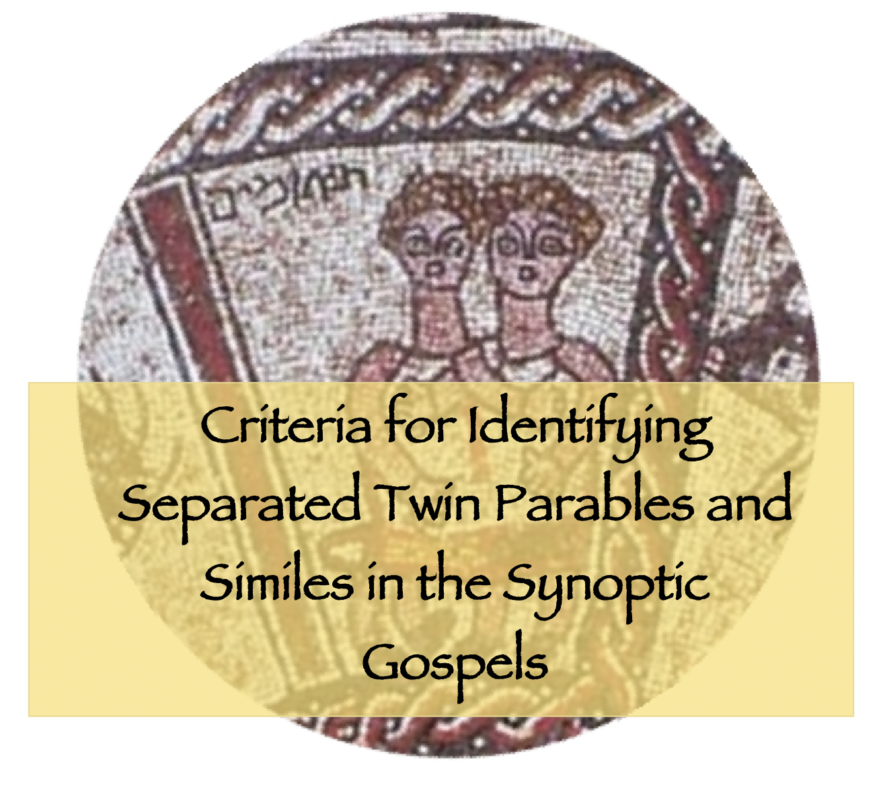
Even casual Gospel observers notice that some of Jesus’ parables and similes come in pairs that resemble one another so strongly that they might be regarded as twins. But how does one determine which parables and similes truly are twins, and which might just bear a family resemblance? In this post David N. Bivin and Joshua N. Tilton suggest five criteria that authenticate parables and similes as true twins.
Yeshua’s Thanksgiving Hymn

In Yeshua’s Thanksgiving Hymn the Holy Spirit inspires Jesus to utter an Essene-style hymn that expresses gratitude for the divine revelation that was being disclosed to his followers.
Return of the Twelve

When Jesus’ twelve emissaries to Israel returned from their mission, thrilled by their success at exorcising demons, Jesus described to them a vision of the expulsion of Satan from heaven. The vision’s message was double-edged: on the one hand, the downfall of the angelic prince meant that the way was opened for the redemption of Israel; on the other hand, having fallen to earth, Satan was about to unleash his fury against God’s chosen people.
LOY Excursus: Greek-Hebrew Equivalents in the LOY Reconstructions

An index of Greek terms and their Hebrew equivalents that occur in the Greek Reconstruction and Hebrew Reconstruction columns of the Life of Yeshua reconstruction documents.
Did Jesus Call God “Abba”?

In the past, some scholars have relied on the evidence of Jesus’ use of the word “Abba” to draw far-reaching conclusions about Jesus, the language he spoke, and his relationship to Judaism. As part of their ongoing research for the LOY project, David Bivin and Joshua Tilton revisited the evidence for Jesus’ use of “Abba” as an address to God. Tilton summarizes their findings here.
A Declaration of Independence and a Pledge of Allegiance

In this blog, Joshua Tilton shares his personal reflections on the Lord’s Prayer based on his research for the Life of Yeshua project.
Jesus the Apostle

Today we usually think of Jesus as the one who appointed apostles, and to hear of Jesus himself being referred to as an apostle can sound jarring. But while referring to Jesus as an apostle might seem strange to Christians in the twenty-first century, this designation for Jesus would not have sounded strange to early believers.
Sending the Twelve: Apostle and Sender
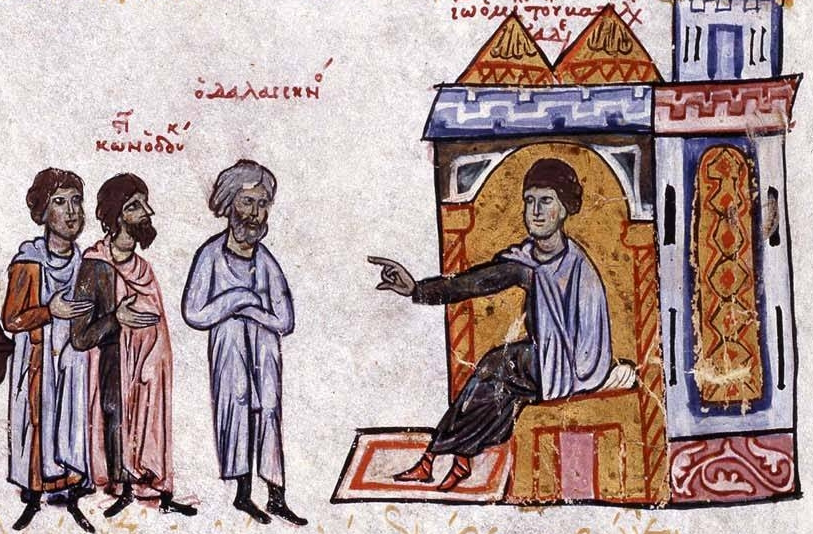
The Apostle and Sender saying (Matt. 10:40; Luke 10:16) not only gave assurance to Jesus’ emissaries as he sent them out on their first healing and teaching mission, it also offers us an extraordinary glimpse into Jesus’ high self-awareness as the shāliaḥ, or official representative, of Israel’s God. In this segment of the Life of Yeshua commentary, David N. Bivin, JP’s editor-in-chief, and Joshua N. Tilton envision how Jesus’ Apostle and Sender saying may have been worded in Hebrew and explore the Jewish backgrounds of this profound saying.
Sending the Twelve: Conduct in Town
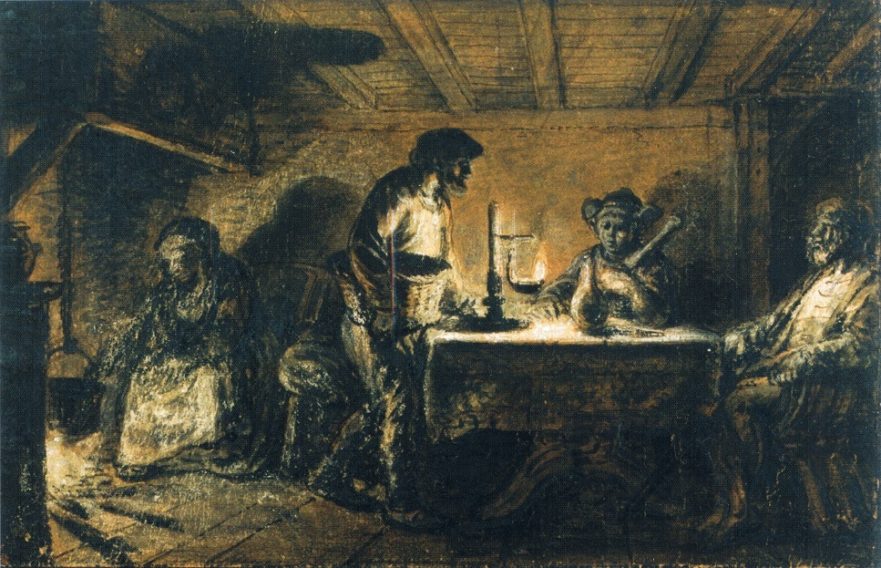
David N. Bivin and Joshua N. Tilton suggest a Hebrew reconstruction of Jesus’ instructions about how the twelve apostles were to behave when they entered a town. In this pericope we learn about the giving and receiving of hospitality among Jesus’ earliest followers. We also learn what may be wrong about the popular view that shaking the dust from the apostles’ feet was a symbolic action meant to signal to Jews who rejected Jesus that they were henceforth to be considered as Gentiles.
“Shake the Dust from Your Feet”: What Did the Apostles’ Action Signify?

The standard interpretation of the apostles’ dust-shaking action proposes that Jesus turned the concept of the impurity of Gentile lands against the Jewish inhabitants of cities within the (ritually pure) land of Israel. This interpretation concludes that shaking the dust from their feet dramatically symbolized that Jesus’ apostles would henceforth regard the Jewish inhabitants of a city that had rejected their message as though they were cut off from Israel. It is time for this mistaken interpretation to finally be put to rest.
Jesus’ Attitude Toward the Samaritans
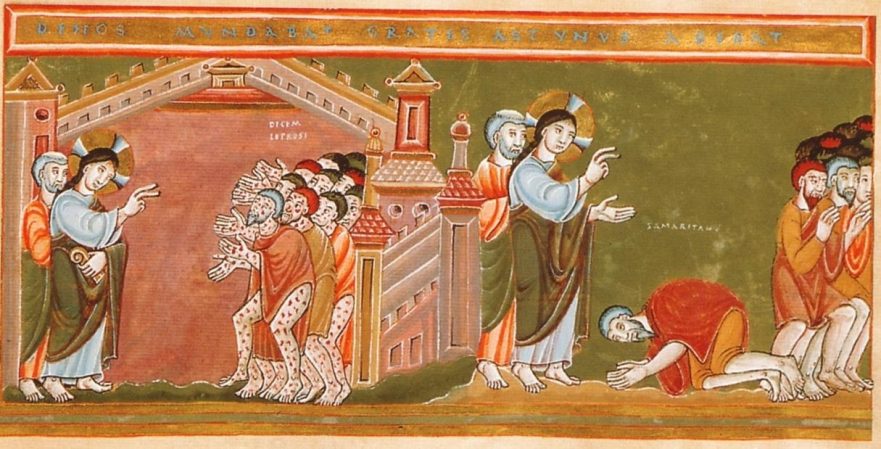
It is always our duty to ask ourselves whether the kind of speech we voice and the kind of rhetoric we listen to engenders respect for our neighbor, no matter how different she or he might be from ourselves, or whether it is sowing the seeds of hatred and violence.

